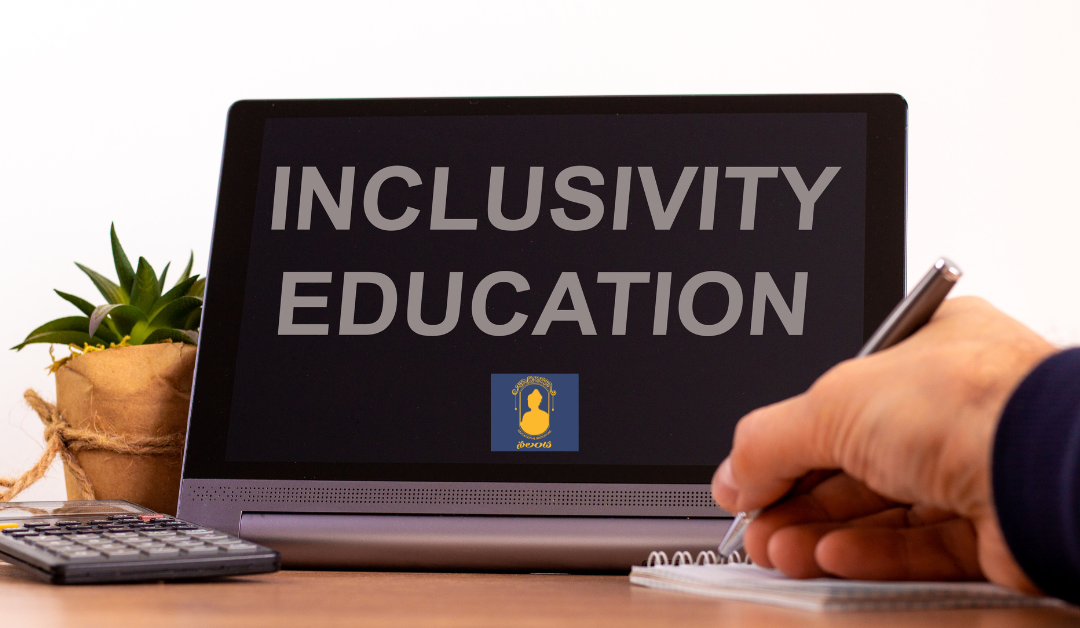Education is the primary right of citizens of India and as a pioneer of education institutions, we at Nalanda education institution cater to the inclusive equality enduring technique of teaching. You might have heard about Inclusive Education but what do you mean by inclusive education exactly?
Inclusive education is about creating an environment where every student feels valued, respected & has equal opportunities to learn, experience and grow in their professional and personal boundaries. Let us discuss further the details and in-depth meaning of Inclusive Education.
WHAT IS INCLUSIVE EDUCATION?
It is an educational approach that welcomes and supports students of all abilities, backgrounds and learning styles. It promotes diversity, equality, and the integration of students with special needs or disabilities into regular classrooms. Inclusive education goes beyond physical accessibility and focuses on removing barriers to provide tailored learning support so that every student can thrive academically, socially and emotionally.
Breaking barriers, building bridges: Inclusive education is like building bridges. It bridges the gap between students with different abilities, backgrounds and cultures fostering a sense of belonging for everyone. In an inclusive classroom, students learn alongside their peers with varying strengths & challenges, encouraging empathy, understanding and acceptance. By breaking down barriers inclusive education promotes unity, collaboration and mutual respect.
Benefits of inclusive education
1. Embracing Diversity
It celebrates diversity in all its forms. It encourages students to appreciate differences, challenge stereotypes, and develop a broader perspective of the world. By interacting with students from different backgrounds, everyone gains a deeper understanding and respect for each other.
2. Enhanced Learning
Inclusive classrooms promote active learning. When students work together, they can share their unique perspectives, ideas, and experiences. This collaborative environment stimulates critical thinking, problem-solving, and creativity, benefiting all students involved. It also encourages the development of social skills and empathy.
3. Personal Growth
It recognizes that each student has unique strengths and challenges. By providing individualized support, students can develop their full potential and overcome obstacles. Inclusive classrooms nurture self-esteem, self-confidence, and a sense of belonging, which are crucial for personal growth and success.
4. Preparation for the Real World
It mirrors the diversity found in society. By experiencing an inclusive environment, students are better prepared to navigate the complexities of the real world. They learn to appreciate and work with people from diverse backgrounds, fostering a more inclusive society in the future.
What are the key essentials of inclusive learning?
1. Teacher Training
Educators play a crucial role in implementing inclusive education. They should receive proper training and support to understand the diverse needs of students and how to adapt their teaching methods accordingly. This training enables them to create an inclusive classroom environment where every student can thrive.
2. Universal Design for Learning (UDL)
UDL is an approach that aims to provide multiple ways for students to access and engage with the curriculum. It involves using various teaching strategies, materials, and assessments to accommodate different learning styles, abilities, and preferences. UDL ensures that all students have equal opportunities to succeed.
3. Collaboration and Support
Inclusive education requires collaboration among teachers, parents, and support staff. By working together, they can identify and address the specific needs of students, develop individualized education plans, and provide necessary accommodations. Open communication and cooperation are key to creating an inclusive school community.
Conclusion
This brings us to the end of the discussion on how inclusive learning is equality and inclusion provoking a sense of collaboration, empathy and unity among the students. Nalanda Education Institution caters to the requirements of students with its intensive inclusive learning methodologies that make things simpler for students and help them grow as individuals.


Recent Comments